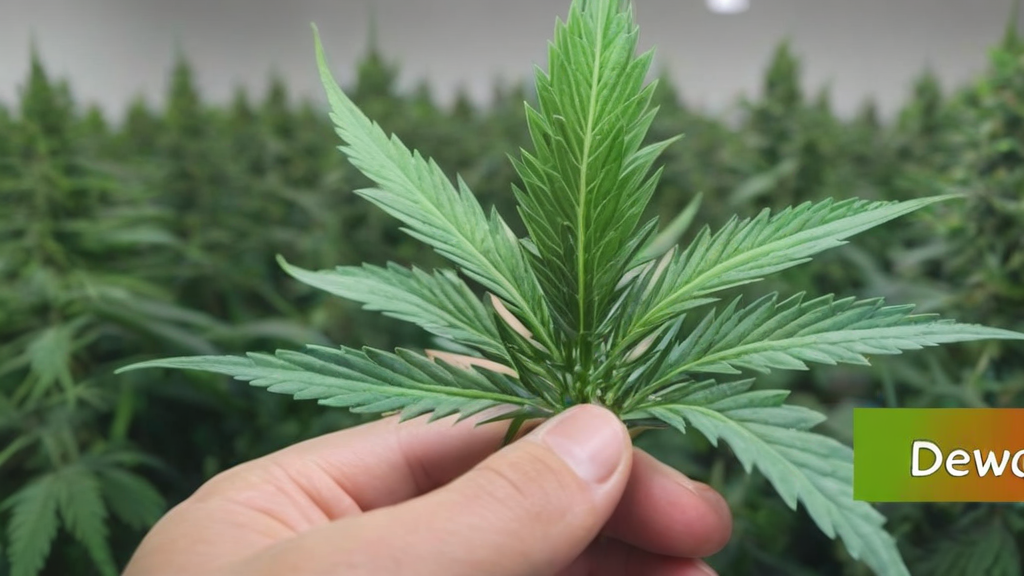A booming market that benefits from the lack of regulation
In Spain, more and more stores offer products made with cannabidiol, better known as CBD. It is a substance that is extracted from the Cannabis Sativa plant and does not have psychoactive properties. That is, it does not alter the mood or generate addiction. Its use is aimed at relieving chronic pain, sleep problems or stress, among others.
This business is legal in many countries, including ours. And it is mainly for two reasons: the absence of specific regulations and the requirement that the product contain less than 0.2% of tetrahydrocannabinol (THC), the component that causes the psychoactive effects for which cannabis is famous. Its cultivation, for example, is not authorized. But its sale.
However, companies in the sector claim that they are in “a kind of legal limbo.” In Spain, CBD products are only sold as a cosmetic or industrial product, although in many cases they are considered a food supplement, as indicated.
In addition, a ruling from the Court of Justice of the European Union (TEU) in 2020 supports its commercialization. In it, it is clarified that it cannot be prohibited to sell CBD, a product legally manufactured and marketed in other Member States without a sufficiently demonstrated health risk.
Industry in Spain
This unknown business in our country is beginning to grow through companies that sell this cannabis derivative in two ways. Either as a cosmetic product (creams and oils) or to consume (flowers and oils too).
The latter is the most demanded by the consumer, according to Jorge Durán, founder of Serenity, a premium CBD oil company that was born in the middle of the Covid pandemic and in the heat of the rise of this new industry.
La Tía María is one of the businesses that sells CBD hemp flowers. It currently has 33 franchises open in Spain, the vast majority in the north of the country and they have become the best example to explain the boom of this business. “Two months ago we only had five franchises. Now there are 33 and we have 15 more pending to open,” Daniel and José, the founders of the company, tell this medium.
It is also becoming common to hear television advertisements from some of these companies. Such is the case of Laboratorios Naturasor, which stands as the first Spanish industry in the transformation of cannabis for therapeutic purposes. It develops the line of cosmetic and medicinal use of Origin products, among others. Products that gain a lot of strength among elite athletes.
Companies in this industry defend the medicinal properties of CBD: it is anti-inflammatory, antioxidant, neuroprotective and contributes to psychophysical relaxation. And most warn that these products are not intended to be a substitute for any medical treatment.
Business in the US
In Spain this business is still incipient, although interest is growing. “Spain is behind many countries. There are more than 40 countries where it is regulated and in Germany it is even in gas stations,” says Jorge Durán.
It is true that in other countries it is more consolidated. For example, in the US it already moves more than 2 billion dollars and is expected to reach 20 billion in 2025, according to the cannabis consulting firm BDSA.
In fact, it is such a booming industry that companies and personalities have jumped on the CBD bandwagon. In the first case, Moolson Coors stands out, the multinational brewer that in Spain owns 51% of La Sagra. It has entered into a CBD beer business line with another company and is already present in 17 US states. Even Coca-Cola even considered entering the CBD beverage segment.
In the second case the examples are more abundant. Justin Bieber announced that he is investing in pre-rolled joints that he calls ‘Peaches’, the name of a song from his most recent album. And Gwyneth Paltrow and Rosario Dawson are involved in THC beverage maker Cann.
Political opportunity
Back to the bill that was being debated in Congress, the Spanish Medicinal Cannabis Observatory believes that it is urgent to regulate the medical use of cannabis. First for the patients who need it and second for the emergence of the black market that breaks the law.
“Regulating this market, from an economic point of view, means creating jobs and collecting money in the form of taxes,” says Cristina Sánchez, spokesperson and professor of Biochemistry and Molecular Biology at the Complutense University of Madrid.
Although the observatory is not throwing in the towel. Despite knowing that Spain is far behind other countries in this type of regulations, they believe that our country will end up approving a regulation for the therapeutic use of cannabis due to “the scientific evidence” that exists.
The list of countries that approve regulations in this regard is growing. The last was Costa Rica, which has given the green light to the legalization of the use of cannabis for medicinal and therapeutic purposes and that of hemp for food and industry.
Maybe Spain will join later. But in the meantime, the non-high cannabis business continues to grow in our country.
